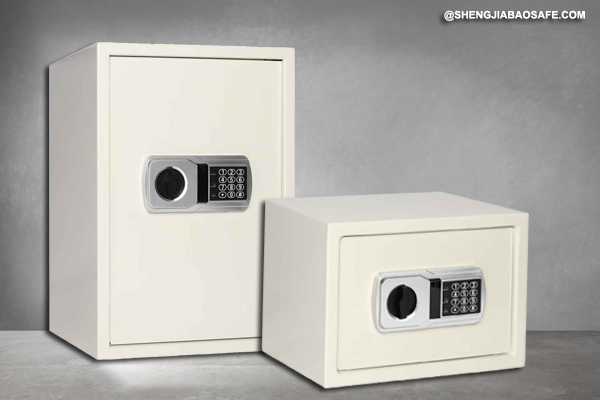The global financial trust crisis intensifies: home safes become “new banks”
In recent years, the global economic environment has become increasingly inward-looking, financial market volatility has intensified, and low-interest and even negative interest rate policies have spread, prompting more and more people to have a trust crisis in the traditional banking system. Against this background, “home safes” are quietly becoming a new choice for citizens of many countries to store wealth. Analysts point out that this phenomenon reflects the public’s deep anxiety about the stability of the financial system, inflationary pressure and policy uncertainty.
Low-interest rate era: savers are forced to “find a way out”
Since the 2008 financial crisis, major economies around the world have long implemented loose monetary policies, and low-interest and even negative interest rate environments have continued for many years. Bank deposit interest rates in many European countries and Japan have long been close to zero. Although the US Federal Reserve System (Fed) has raised interest rates many times in recent years, the actual returns of ordinary depositors are still far below the inflation level. According to statistics from the International Monetary Fund (IMF), the number of countries with negative actual deposit interest rates in the world reached 25 in 2023, a record high.
“Not only does it not earn interest to keep money in the bank, but it may also depreciate due to inflation.” Hans Mueller, a 58-year-old retired German teacher, said that he withdrew most of his savings from the bank last year and stored them in cash in a home safe, “At least I can see and touch it.” This sentiment is particularly common in Europe. Data from the German central bank showed that household cash holdings increased by 13% year-on-year in 2022, setting a post-World War II record.
Frequent bank risks have exacerbated anxiety
Low returns are just the tip of the iceberg of the problem. In recent years, the collapse of well-known financial institutions such as Silicon Valley Bank (SVB) and Credit Suisse has further shaken the public’s confidence in the banking system. Although regulators in various countries quickly intervened and implemented rescue with the logic of “too big to fail”, ordinary depositors are still worried about the safety of their assets.
In the United States, the FDIC (Federal Deposit Insurance Corporation)’s $250,000 insurance limit does not cover the concerns of high-net-worth customers. “If even a ‘financial haven’ like Switzerland can suddenly ‘rewrite the rules’ (referring to the Credit Suisse AT1 bond write-down incident), who can guarantee that our deposits are absolutely safe?” Lisa Chen, a New York private bank customer, admitted that she has withdrawn cash in batches and turned to home safes and precious metal storage services.
Similar trends are also evident in some Asian countries. In Japan’s long-term deflationary environment, the phenomenon of household cash hoarding has a long history, and in recent years, some parts of China have also seen signs of “deposit relocation”. A Beijing citizen who did not want to be named told reporters that he was concerned about the repayment ability of small and medium-sized banks’ wealth management products, and preferred to convert part of the funds into physical gold or foreign currency cash for storage.
Cash control and security concerns
However, it is not without risks for families to deposit large amounts of cash on their own. Many governments have implemented strict supervision on large cash transactions. For example, the EU stipulates that cash transactions exceeding 10,000 euros must be reported, and the United States requires banks to review transactions that deposit and withdraw more than 10,000 US dollars in a single day. In addition, the anti-theft capabilities of home safes vary, and problems such as burglary and fire hazards cannot be ignored.
“Household cash storage cannot increase in value, and it also faces physical risks and legal gray areas,” warned David Cohen, an economics professor. This trend may encourage the underground economy and weaken the effectiveness of the central bank’s monetary policy transmission. Some experts suggest that people who are worried about financial risks can consider diversifying their assets, such as increasing their holdings of government bonds, gold ETFs or reputable multinational bank products.
Where to go in the future?
Analysts generally believe that the “safe deposit fever” is a “vote of no confidence” cast by the public in the current financial system. To reverse this situation, policymakers need to make more efforts in inflation control, transparent bank supervision and protection of savings rights.
“When people feel more assured to hide their money under the bed than to hand it over to an institution, this is itself a signal of a systemic problem,” the Institute of International Finance (IIF) report wrote. “It takes time to rebuild trust, and the current phenomenon of ‘cash repatriation’ may be another warning that the global economy has entered deep waters.”
Post time: Jul-01-2025


